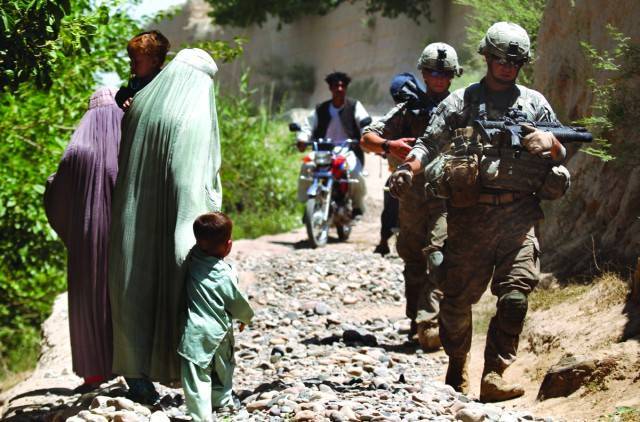The Importance of Women’s Participation in Peace Processes
Despite the undeniable potential for enhancing the quality of peace negotiations, the role of women at the negotiating table has often been overlooked. The absence of women’s voices in international conflict resolution leads to a post-conflict landscape that risks further marginalization. The UN Security Council Resolution 1325 emphasizes the need for increased female participation in peacebuilding efforts. UN Secretary-General Antonio Guterres has noted the significant barriers that violence against women poses to human rights and women’s inclusion in sustainable development and peace.
Women Sidelined in Peace Talks
As conflicts rage worldwide, women remain at heightened risk, yet they continue to be excluded from peace negotiations. This lack of meaningful participation creates formidable challenges in addressing violent and complex conflicts. Women are frequently subjected to specific and brutal crimes within conflict zones, facing assault, injury, and psychological trauma. Yet, their enduring resilience often goes unrecognized.
The Unseen Exclusion
The ongoing wars in places like Ukraine and Israel-Gaza highlight a troubling trend: while women face the same fatalities and health care restrictions as men, they are systematically excluded from diplomatic and mediation efforts. This significant oversight diminishes the likelihood of achieving lasting peace.
Women’s Advocacy in Conflict
Despite the challenges posed by their exclusion, women have successfully organized powerful protests against warfare. Movements like The Way Home, initiated by Russian mothers and wives demanding the safe return of their loved ones, demonstrate how maternal and feminine images can mobilize public sentiment against war. Similarly, Ukrainian women have stepped forward to advocate for peace and the demobilization of soldiers.
Gender Issues in Conflict Resolution
Gender considerations are frequently neglected in conflict and post-conflict agendas. The absence of a women’s rights agenda in Afghan peace talks has had dire repercussions under the Taliban regime. Similarly, the neglect of gender inclusivity in Sudan’s peace processes has led to gender-blind institutions in the aftermath of conflict. This exclusion not only hampers the prospects for durable peace but also endangers women’s rights.
Calling Attention to Injustice
Heather Barr, interim co-director of women’s rights at Human Rights Watch, emphasized the alarming disregard for Afghan women’s struggles in peace discussions. She stated, “The minimal inclusion of women at Moscow talks shows an appalling disregard for Afghan women’s struggle for over a decade to be full participants in peace processes as called for by the UN security council.”
The Path to Effective Peacebuilding
Involving women directly in peace negotiations significantly enhances prospects for successful peacebuilding. Strategically linking women at the negotiating table with grassroots female civil society activists fosters a broader peace process and addresses inequality.
The Value of Women’s Perspectives
Women contribute invaluable real-life experiences and alternative solutions to multifaceted conflicts. Daisaku Ikeda’s insightful remark encapsulates this wisdom: “Men and women who know the brutal reality of war, who know that war strips people of their very humanity, must unite in a new global partnership for peace.”
Building a Network of Support
Women’s active participation in peace negotiations cultivates a robust support network within society. Female delegates not only shed light on the injustices faced by everyday women but also communicate crucial insights from negotiation processes to their grassroots counterparts. This exchange enhances the mobilization of various women’s civil society groups, enabling a shared experience that enriches the dialogue at both the negotiation table and the community level.
The Strength of Nonviolence
Nobel Peace Laureate Betty Williams believed in the transformative power of kindness and dialogue, asserting that these simple acts can change perspectives. In our contemporary context of ongoing global conflicts and stalled diplomatic efforts, her words resonate: “I always say that nonviolence is not the weapon of the weak. It is the weapon of the strong.”
Innovative Perspectives on War and Peace
Glenda Sluga, in her article “What do we learn about war and peace from women international thinkers?” highlights that women have long drawn upon unique examples, achieved uncommon conclusions, and forged alternative intellectual traditions.
The Resilience of Women in Conflict
Amidst the physical and psychological toll of war, women have risen to the challenge, serving as war journalists and peace activists who expose the widespread human suffering in conflict zones. Therese Bonney, a WWII photojournalist, exemplified this courage, stating, “I go forth alone, try to get the truth, and then bring it back and try to make others face it and do something about it.”
Collective Voices for Peace
Recognizing the collective voice of mothers, wives, and daughters in their push for lasting peace, initiatives like Women Wage Peace, representing both Palestinian and Israeli women, signal the beginning of a movement advocating for women’s inclusion in humanitarian responses. Arrancha Gonzalez, former EU minister of foreign affairs, powerfully summarized this sentiment, stating: “We must continue the fight for a polyphony of voices at the table to ensure that every day is International Women’s Day.”


